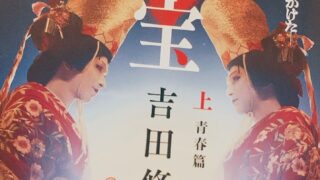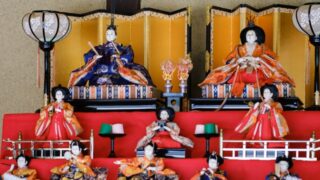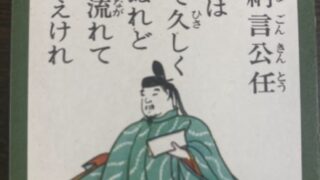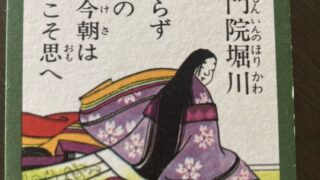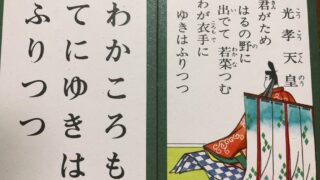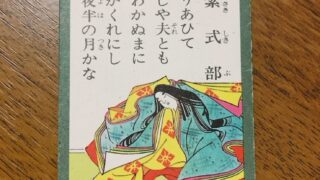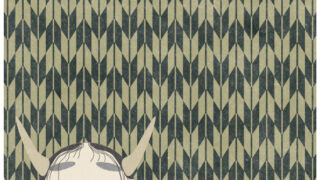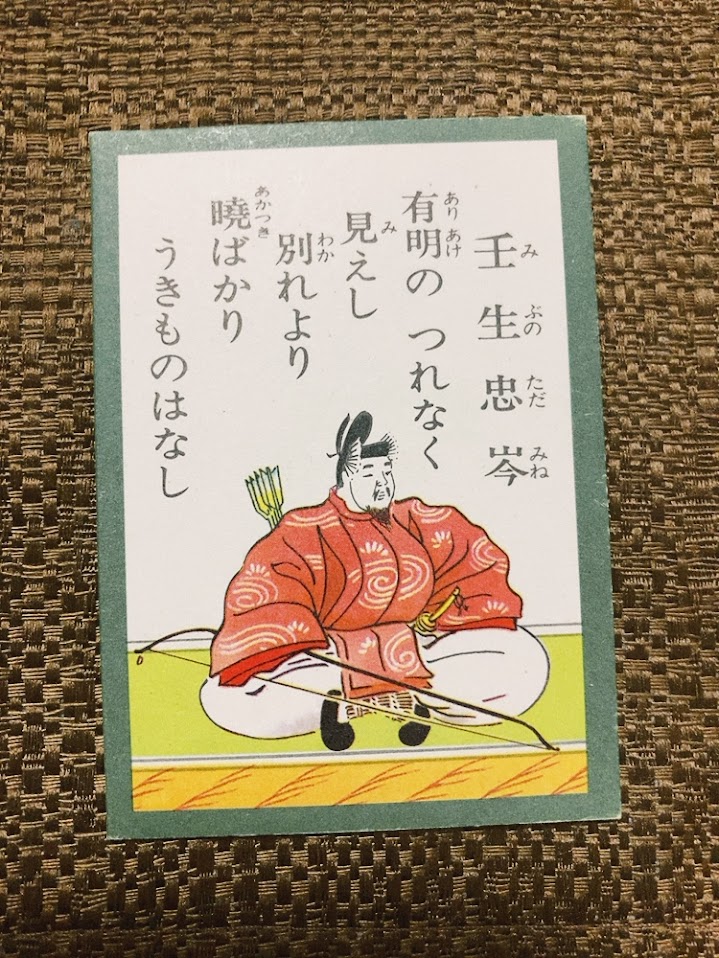恋の歌を2回紹介しましたが、恋があるなら別れもあります。今日の歌は別れの歌です。
この時代の貴族の男性はどのように女性と付き合っていたのでしょうか。
I have introduced two poems about love. If there is love, there is separation. Today’s one is a breakup poem.
How did aristocratic men of this period associate with women?
有明の つれなく見えし 別れより 暁ばかり うきものはなし
壬生忠岑(860~920)
百人一首 三十番
古今和歌集 恋
みぶのただみね
ひゃくにんいっしゅ さんじゅうばん
こきんわかしゅう こい
かな
ありあけの つれなくみえし わかれより あかつきばかり うきものはなし
言葉の意味
| 有明の | 朝に残っている月 | the moon remaining in the morning |
| つれなく見えし | 冷たく見えた | seemed cold |
| 別れより | 別れた時から | since we parted |
| 暁ばかりうきものはなし | 夜明け前よりつらいものはない | There’s nothing worse than before dawn |
現代語訳
あなたは朝の月のように冷たく見えました。あなたと別れてから、夜明け前ほどつらいものはありません。
You seemed as cold as the morning moon. Since I left you, nothing has been more painful than before dawn.
昔の貴族は、結婚しても一緒に住まないことが一般的でした。男性が女性の家に通っていました。これを通い婚と言います。夜に男の人が女の人の家に行きます。一晩一緒に過ごしてから、朝に自分の家に帰ります。
そのため、昔の貴族は朝の月を、特別な気持ちで見ていました。昔の人にとって、朝の月は、別れを象徴するものでした。有明の月を詠んだ歌がたくさんあります。好きな人がいなくなる時間、そして朝の月のように消えてしまう気持ちを歌にしていました。
In the old days, it was common for aristocrats to marry but not live together. The man went to the woman’s house. It is called a commuter marriage. The man would go to the woman’s place at night. They spend the night together and then return to their homes in the morning.
Therefore, the nobles of the old days looked at the morning moon with a special feeling. For people in the old days, the morning moon symbolized parting. There are many poems about the Ariake moon. The time when the person you love has to leave, and the disappearing feeling like the morning moon, were written into a poem.
この歌の作者、壬生忠岑、前回紹介した壬生忠見に名前が似ていますね。壬生忠岑は壬生忠見のお父さんです。親子で歌に優れていて、恋の歌を詠んでいました。子が恋の始まりの歌、父が別れの歌を詠んでいるのがおもしろいです。
昔の人は夫婦でも一緒に住んでいなかったから、強く相手のことを思って歌を詠んでいたのかもしれませんね。
The author of this poem, みぶのただみね, has a name similar to みぶのただみ, whom I introduced in the previous issue. みぶのただみね is the father of みぶのただみ. Both father and son were excellent poets and wrote about love. The son is composing a poem about the beginning of love and the father is composing one about goodbye. It’s interesting.
People in the past, even married couples, did not live together, so they may have composed poems strongly thinking of the other person.
| 一般的(な) | いっぱんてき | general |
| 通い婚 | かよいこん | commuter Marriage |
| 象徴する | しょうちょうする | symbolize |
今日もありがとうございました。少し暖かくなってきました。よい週末を。
